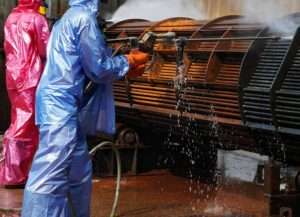Снижение процентной ставки по ипотеке
Устал от высоких процентов по ипотеке? Найди лучшие предложения и снизь ежемесячные платежи! Простые советы и выгодные программы – всё на https://example.com. Сравни, выбирай и экономь!
Получение ипотеки – это серьезный шаг‚ требующий тщательного планирования и анализа всех финансовых аспектов. Ежемесячные платежи могут значительно различаться в зависимости от процентной ставки‚ поэтому снижение процентов – это ключевой фактор оптимизации бюджета. Выбор подходящей программы ипотечного кредитования – это лишь начало пути. На странице https://example.com вы найдете дополнительную информацию о различных вариантах ипотечного кредитования. Правильное понимание механизмов работы с банками позволит вам эффективно снизить ежемесячную нагрузку и сэкономить значительные суммы денег в долгосрочной перспективе.
Анализ текущей ситуации и поиск возможностей
Прежде чем предпринимать какие-либо действия‚ необходимо тщательно проанализировать вашу текущую ситуацию. Определите размер вашего текущего ежемесячного платежа‚ оставшуюся сумму кредита и процентную ставку. Сравните её с предложениями других банков. Возможно‚ рефинансирование в другом банке окажется выгоднее. Изучите условия вашей ипотечной программы – есть ли возможность досрочного погашения или изменения условий кредита.
Сравнение предложений разных банков
Один из самых эффективных способов снизить процентную ставку – это сравнить предложения разных банков. Используйте онлайн-калькуляторы ипотечных кредитов‚ чтобы оценить выгоду от перехода к другому кредитору. Обратите внимание не только на процентную ставку‚ но и на дополнительные комиссии и скрытые платежи. Не стесняйтесь обращаться в несколько банков и уточнять условия предоставления ипотеки.
- Соберите информацию о предложениях минимум трех банков.
- Уточните все детали‚ включая процентные ставки‚ комиссии и сроки кредитования.
- Сравните все предложения‚ обращая внимание на общую сумму переплаты.
- Выберите наиболее выгодный вариант.
Стратегии снижения процентной ставки
Существует несколько эффективных стратегий‚ которые помогут вам снизить процентную ставку по вашей ипотеке. Рассмотрим некоторые из них подробнее.
Рефинансирование ипотеки
Рефинансирование – это перезаключение ипотечного договора на более выгодных условиях. Если ставки на рынке снизились‚ вы можете рефинансировать свою ипотеку в другом банке‚ получив более низкую процентную ставку. Однако помните о потенциальных комиссиях и расходах‚ связанных с процессом рефинансирования. Тщательно взвесьте все «за» и «против» перед принятием решения.
Досрочное погашение части кредита
Досрочное погашение части кредита – это еще один способ снизить общую сумму переплаты и‚ косвенно‚ уменьшить эффективную процентную ставку. Даже небольшое досрочное погашение может существенно повлиять на размер ежемесячных платежей в долгосрочной перспективе. Уточните в вашем банке возможность частичного досрочного погашения и условия этой процедуры.
Улучшение кредитной истории
Ваша кредитная история играет важную роль при определении процентной ставки по ипотеке. Чем выше ваш кредитный рейтинг‚ тем ниже процентная ставка вам предложат. Погашайте кредиты вовремя‚ избегайте просрочек и следите за своей кредитной историей. Улучшение кредитного рейтинга может открыть двери для более выгодных предложений в будущем.
Повышение первоначального взноса
Если у вас есть возможность увеличить первоначальный взнос‚ это также может положительно повлиять на процентную ставку. Меньший размер кредита снижает риск для банка‚ что может привести к предоставлению более выгодных условий.
Использование дополнительных программ банка
Некоторые банки предлагают специальные программы для снижения процентной ставки. Это могут быть программы лояльности для постоянных клиентов‚ скидки для определенных категорий граждан или специальные предложения на определенные периоды времени. Изучите предложения вашего банка и других банков‚ чтобы найти подходящие для вас программы.
- Проверьте наличие программ лояльности для клиентов банка.
- Уточните‚ есть ли скидки на процентные ставки для определенных категорий заемщиков.
- Обратите внимание на временные акции и специальные предложения.
Важные моменты при снижении процентов по ипотеке
Не стоит забывать о важных моментах‚ которые следует учесть при планировании снижения процентов по ипотеке. Внимательно изучайте все документы‚ прежде чем подписывать какие-либо соглашения. Не торопитесь с принятием решений и сравнивайте предложения разных банков. Проконсультируйтесь с финансовым специалистом‚ если у вас возникнут вопросы или трудности.
На странице https://example.com вы найдете дополнительную информацию о различных аспектах ипотечного кредитования.
На странице https://example.com вы найдете дополнительную информацию.
Описание⁚ Статья содержит подробную информацию о том‚ как понизить проценты по ипотеке‚ и предлагает эффективные стратегии для решения этой задачи.






